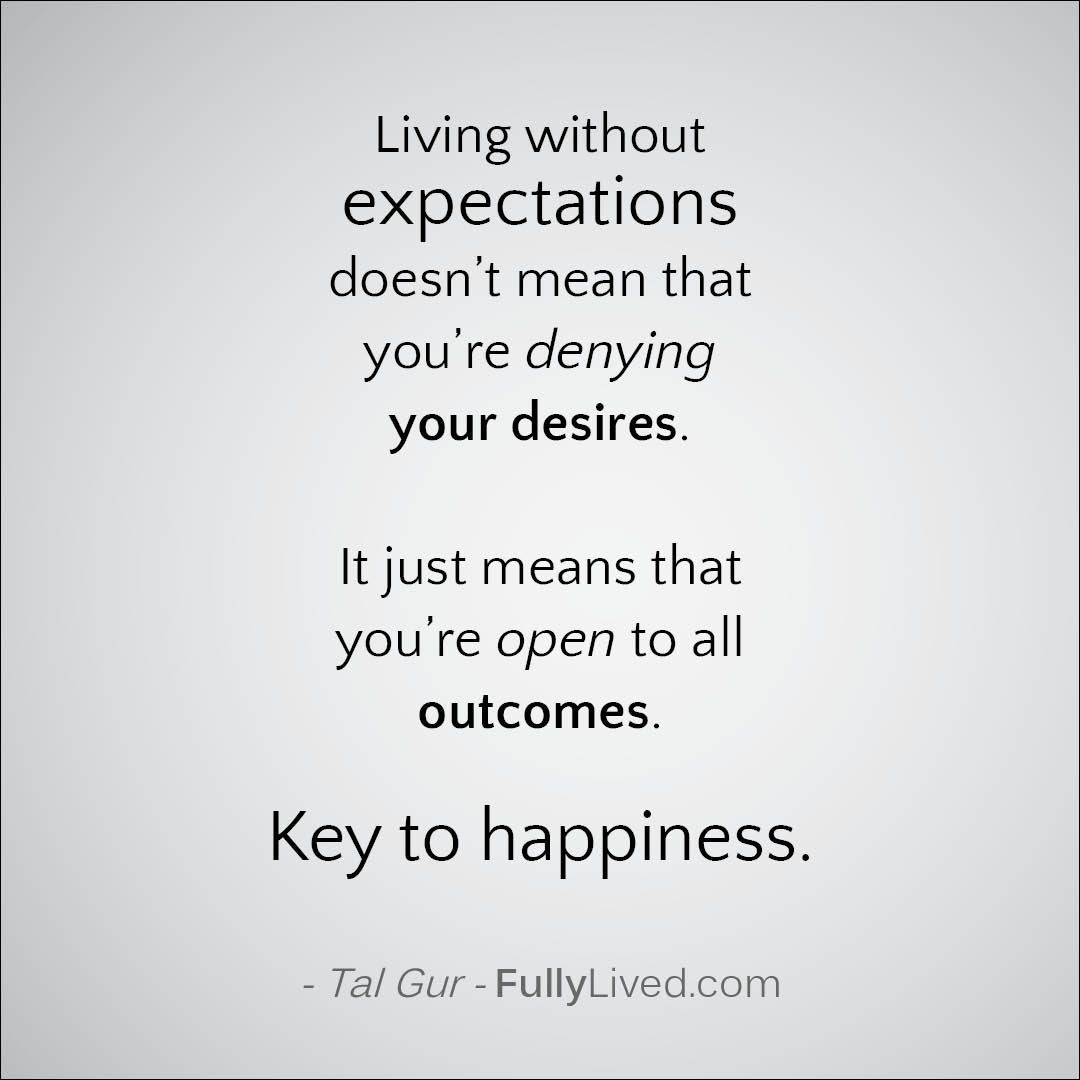Living without expectations doesn’t mean that you’re denying your desires. It just means that you’re open to all outcomes. Key to happiness.
This quote offers a profound perspective on how to approach life with a healthy mindset. It underlines the difference between having desires - which are natural, human, and a driving force behind our actions - and setting expectations, which can often lead to disappointment if they're not met. It suggests that to live without expectations is not about suppressing or ignoring our desires, but rather about cultivating an open-minded approach to life. This openness to all outcomes, including those we hadn't foreseen or hoped for, can be an instrumental key to happiness. It encourages a kind of emotional flexibility, where we're not overly attached to a particular result or outcome. It's about learning to find joy and fulfillment in the journey, rather than just the destination. It's about understanding that life is a complex tapestry of experiences, and that we cannot, and perhaps should not, try to control every thread. Instead, we should learn to adapt, to grow, and to find contentment and peace in whatever life throws our way. This is not a passive acceptance, but an active process of adaptation and growth. So, in essence, the quote promotes a sense of mental and emotional freedom, a liberation from the often self-imposed chains of rigid expectations, and an embrace of life's unpredictability as a source of potential joy and learning rather than fear and disappointment.
Is there a historical example that illustrates the message of the quote?
There are many historical examples that illustrate the message of the quote, but let's consider the life of Thomas Edison, the renowned American inventor. Edison's journey perfectly embodies the idea of living without specific expectations while not denying one's desires.
Thomas Edison is widely known for his invention of the practical electric light bulb, among many other innovations. However, what most people don't realize is that before he finally achieved success, Edison experienced thousands of failures. He famously said, "I have not failed. I've just found 10,000 ways that won't work." Now, if Edison had rigid expectations about his outcomes, he might have given up after a few failed attempts, crushed by disappointment. But he didn't. He had a deep desire to invent and innovate, and although he undoubtedly hoped for success, he didn't tie his happiness or self-worth to immediate, specific outcomes.
Instead, Edison was open to all outcomes, including failure. He saw each failure not as a disappointment, but as a lesson learned, a stepping stone on the path to eventual success. His resilience, his ability to adapt and learn from his experiences, were key to his happiness and his ultimate achievements.
Edison's story serves as a powerful example of how living without rigid expectations - while still nurturing and pursuing our desires - can lead to both personal fulfillment and extraordinary accomplishments. His approach to life and work embodies the essence of the quote, showing us that we can strive for what we want, yet remain open to all outcomes, embracing the journey as much as the destination.
* If you're looking for more inspiration to help you on your personal development journey, you may want to check out my extensive list of SMART goals. This page is packed with thousands of different goal ideas that can help you set new aspirations and reach higher heights in your life. Personally, this page helped me to create my own 100 life goals list, which I pursued for over a decade.
Chief Editor
 Tal Gur is an author, founder, and impact-driven entrepreneur at heart. After trading his daily grind for a life of his own daring design, he spent a decade pursuing 100 major life goals around the globe. His journey and most recent book, The Art of Fully Living, has led him to found Elevate Society.
Tal Gur is an author, founder, and impact-driven entrepreneur at heart. After trading his daily grind for a life of his own daring design, he spent a decade pursuing 100 major life goals around the globe. His journey and most recent book, The Art of Fully Living, has led him to found Elevate Society.






















